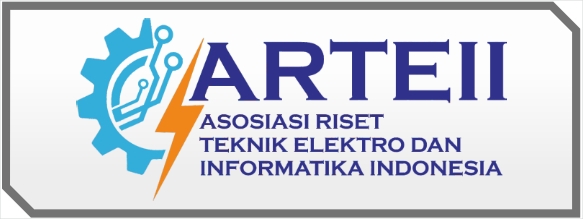Exploring the Role of Artificial Intelligence in Fostering Ethical Business Practices: Insights from Digital Marketing Advancements in Indonesia
DOI:
https://doi.org/10.55606/icesst.v1i2.393Keywords:
Artificial Intelligence, Ethical Business Practices, Digital Marketing, Qualitative ExplorationAbstract
This study investigates the utilization of Artificial Intelligence (AI) to promote ethical business practices within the evolving landscape of digital marketing in Indonesia. The research aims to elucidate the current state of AI integration, its impact on ethical considerations, and the challenges and opportunities it presents. The study adopts a qualitative approach, employing semi-structured interviews and focus group discussions with key stakeholders involved in digital marketing and AI development. Sampling techniques include purposive sampling to ensure representation across industries and snowball sampling to access knowledgeable participants. Data analysis follows thematic analysis principles, identifying recurring patterns, themes, and divergences related to ethical concerns and AI implementation. Preliminary findings indicate a nuanced relationship between AI adoption and ethical dilemmas, with emerging strategies to balance innovation with ethical principles. This study contributes to understanding the ethical implications of AI in digital marketing and offers insights for businesses, policymakers, and scholars aiming to navigate this complex terrain responsibly.
References
Aini, Q., Susanty, A., & Huda, N. (2021). The Ethical Challenges of Digital Transformation for Indonesian Companies. Proceedings of the 2021 4th International Conference on Information Systems and Computer Networks, 45-49.
American Psychological Association. (2017). Ethical Principles of Psychologists and Code of Conduct. Retrieved from https://www.apa.org/ethics/code/
Biernacki, P., & Waldorf, D. (1981). Snowball Sampling: Problems and Techniques of Chain Referral Sampling. Sociological Methods & Research, 10(2), 141-163.
Braun, V., & Clarke, V. (2006). Using thematic analysis in psychology. Qualitative Research in Psychology, 3(2), 77-101.
Chen, H., Chiang, R. H., & Storey, V. C. (2021). Business Intelligence and Analytics: From Big Data to Big Impact. MIS Quarterly, 45(2), 569–590.
Creswell, J. W., & Creswell, J. D. (2017). Research Design: Qualitative, Quantitative, and Mixed Methods Approaches. Sage Publications.
Creswell, J. W., & Poth, C. N. (2018). Qualitative Inquiry and Research Design: Choosing Among Five Approaches. Sage Publications.
Floridi, L. (2019). Soft ethics, the governance of the digital and the General Data Protection Regulation. Philosophy & Technology, 32(1), 1-8.
Jobin, A., Ienca, M., & Vayena, E. (2019). The global landscape of AI ethics guidelines. Nature Machine Intelligence, 1(9), 389-399.
Kamble, S. S., & Gunasekaran, A. (2021). Ethical implications of the use of artificial intelligence in digital marketing: A systematic review and agenda for future research. International Journal of Information Management, 57, 102351.
Krueger, R. A., & Casey, M. A. (2015). Focus Groups: A Practical Guide for Applied Research. Sage Publications.
Lincoln, Y. S., & Guba, E. G. (1985). Naturalistic Inquiry. Sage Publications.
Ndiaye, T., El Haddadi, A., & Bennani, S. (2020). Artificial Intelligence in Digital Marketing: A Literature Review. 2020 International Conference on Advanced Communication Technologies and Networking (CommNet), 1-5.
Patton, M. Q. (2015). Qualitative Research & Evaluation Methods: Integrating Theory and Practice. Sage Publications.
Sharma, R., Yetton, P., Crawford, J., & Esteva, A. (2019). AI and automation in the age of COVID-19: A human-capital resiliency perspective. Information Systems Research, 32(4), 1102-1129.
Wajong, B. E. R., Irawan, D., Wylen, & Bernarto, I. (2020). Persepsi Karyawan pada CSR, Keterlibatan Karyawan, dan Kepemimpinan Etis pengaruhnya terhadap Kreatifitas Karyawan. Jurnal Administrasi Bisnis (Jab), 10(2), 72–79. https://doi.org/https://doi.org/10.35797/jab.v10.i2.72-79
Wijaya, A. S., & Sukresna, I. (2020). The Ethical Implications of Artificial Intelligence (AI) Adoption in Indonesian E-Commerce Platforms. Jurnal Manajemen Teknologi, 19(2), 154-167.
Downloads
Published
How to Cite
Issue
Section
License
Copyright (c) 2022 The International Conference on Education, Social Sciences and Technology (ICESST)

This work is licensed under a Creative Commons Attribution-ShareAlike 4.0 International License.















